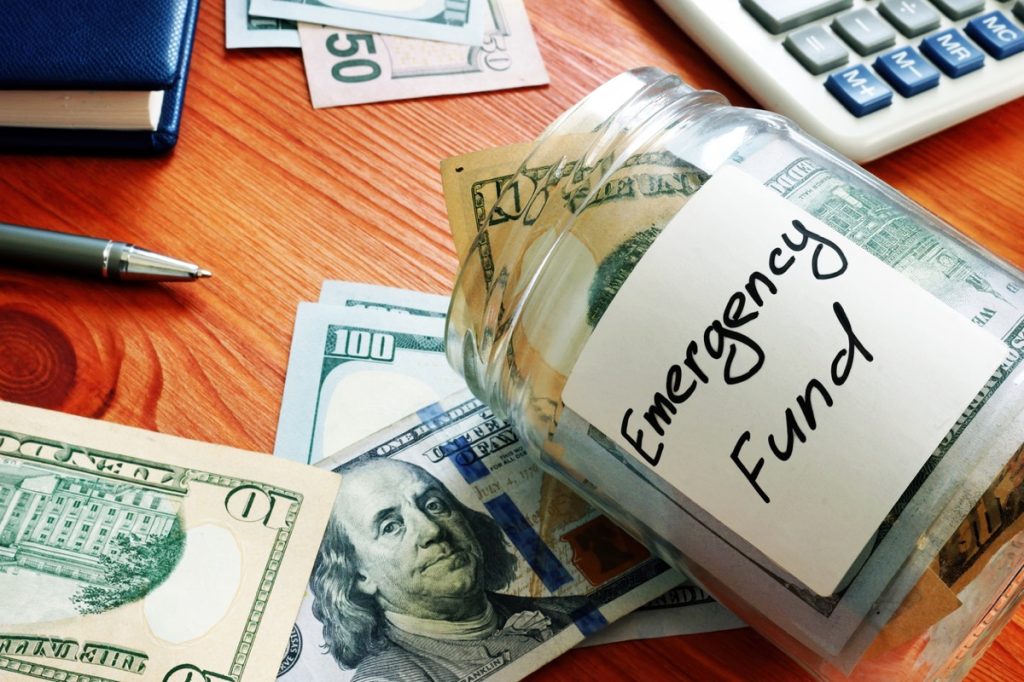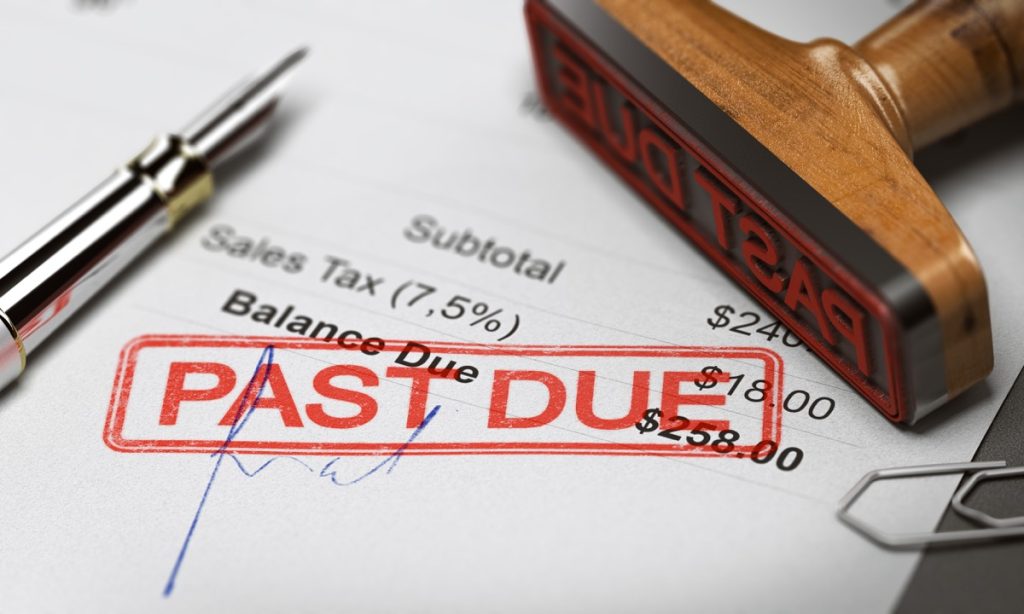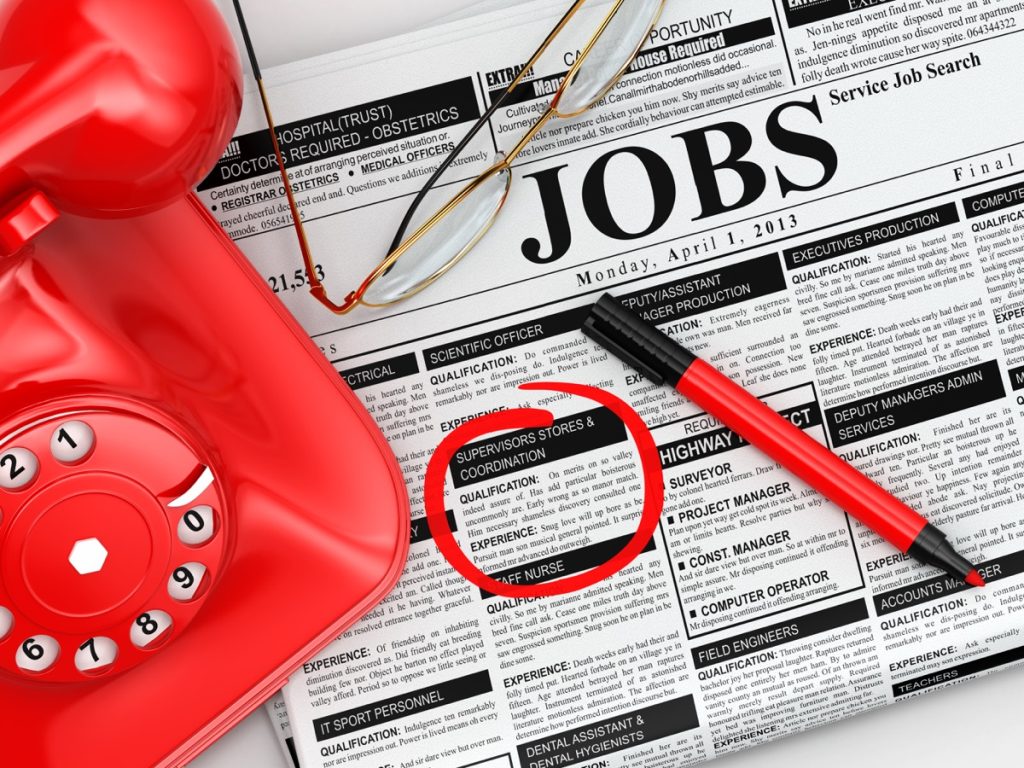10 Steps to Prepare Your Finances for a Recession, Experts Say

Though we’re not officially in or headed for a recession, there is undoubtedly concern about the economy among the public. According to a recent poll from Credit Karma, 78 percent of Americans started 2024 with existing financial concerns, with the most common fear (38 percent of respondents) being a recession. Hopefully it never materializes, but there’s nothing wrong with being prepared for the worst.
“When it comes to dealing with the ups and downs of the economy, making sure your finances are on solid ground is a game-changer,” Cassandra Happe, analyst at WalletHub, explains to Best Life.
Planning for what may be to come? Read on for the steps you should take to prepare your finances for a potential recession, according to experts.
RELATED: 7 “Money-Saving” Shopping Hacks That Can Cost You Big.
1
Build an Emergency Fund

You don’t want to be caught in an economic downturn short on cash. For that reason, Happe suggests building an emergency fund.
“Establish a savings buffer to cover unexpected expenses like job loss or medical emergencies,” she recommends. “And strive for at least three to six months’ worth of living expenses in your emergency fund.”
If you’re struggling to come up with extra cash to tuck away, experts say there are still options.
“Consider taking out a secure loan such as a home equity line of credit (HELOC). If you have built up significant equity in your home, you can access it at a relatively low cost through a HELOC,” says Rebecca Awram, mortgage advisor at Seniors Lending Centre. “With these types of credit lines, you only have to pay interest on what you use, making it perfect to save for a rainy day or cover unexpected costs in a recession.”
2
Pay Down High-Interest Debt

Staying on top of what you owe can be challenging even in the best of times. That’s why paying down high-interest debt as early as possible will save you big in the future. According to Happe, it’s worth it to prioritize getting these off your plate before the economy takes a turn.
“Reduce financial stress by creating a plan to pay off high-interest debts, like credit card balances,” she says. “Clearing such debts enhances financial stability during challenging times.”
RELATED: Never Use Autopay for These 6 Bills, According to Financial Experts.
3
Review and Trim Your Budget

Has it been a while since you’ve made cuts to your budget? Experts say it’s important to stick to an oversight schedule to ensure things don’t get out of hand.
“I always recommend folks organize their finances every quarter and determine where they can cut non-essential expenses,” Robert Farrington, Founder of The College Investor, tells Best Life. “Is there a gym membership that you signed up for earlier in the year and have since stopped using? Or, are you noticing a particular store that you tend to overspend at quite frequently?”
Once you’ve started trimming the fat, you can also become proactive. “Next time you go to that store, give yourself a budget to stick to and think twice before throwing an item into your cart,” he adds.
4
Boost Your Income

Bringing in more cash is a plus, no matter which way the economy may be headed. Two possible avenues to that are taking on extra part-time work or negotiating a raise at your job. But experts say there’s another way to achieve some added financial flexibility.
“A side hustle is a great way to boost income at any point, but especially if you are trying to keep increasing costs from putting too much pressure on your budget,” says Awram.
She says she sees many professionals starting to offer freelance consulting in their respective fields on the side of their full-time job—or even in retirement. “Many older professionals or those who have recently retired from their jobs are the most knowledgeable and great resources for those who are just getting started in the industry,” Awram explains.
She warns that it may not be as easy as collecting a paycheck, but there are certainly rewards. “There is an entrepreneurial aspect to this side hustle as you have to set up a medium to meet clients—such as having a personal website or social media presence for people to find you—but a major pro is that you can do it remotely,” she says. “It is entirely flexible and highly lucrative as there are no overhead fees, and you are your own boss.”
She adds that this also means you set the rate for your services, which can start as high as $25 per hour, depending on the industry.
5
…Or Find a New Job

A dip in the economy will affect each industry differently. Mike Sullivan, personal finance consultant for Take Charge America, warns that it might make weathering the storm even harder if you’re in the wrong one.
“It is not always easy to find a job during a period of layoffs and job reductions, so you do not want to be the newest employee in a job category,” he says. “You do, however, want to be in a crucial role in an industry that can weather a recession. Some industries like entertainment and travel normally suffer most during economic downturns, while other industries like healthcare and groceries typically survive with fewer job losses.”
RELATED: 10 Things You Should Stop Buying When You Retire, Finance Experts Say.
6
Diversify Investments

There’s a reason why people warn against having all of your eggs in one basket. If you’re preparing for the worst, you should spread your investments across different asset classes, such as stocks, bonds, and real estate, Hoppe explains.
“Diversification helps mitigate risk—although it doesn’t guarantee profits or shield against market losses,” she says.
If you’re wondering where to come up with the cash to begin investing, consider what you might be holding on to as a result of your new budget. “Try to redirect any newly saved funds into secure investments such as high-yield savings accounts, which can help you make a profit over time while keeping your money safe from any fluctuating market conditions,” Awram suggests.
However, according to Scott Nelson, debt expert at MoneyNerd, some purchases should wait if you’re feeling certain an economic downturn is on the horizon.
“A recession is typically started due to high interest rates—like we’ve been seeing,” he tells Best Life. “Once started, however, a recession is often tackled by lowering interest rates to stimulate growth. This means that if you save the cash now, you can get a much better deal on a car or a home thanks to lower interest rates, meaning lower monthly payments—not to mention that prices on both typically drop, too.”
7
Cut Unnecessary Expenses and Find New Ways to Save

Thanks to automated payments, you may lose track of some of your spending. That’s why part of your budgeting should include checking credit card bills for anything that’s recurring or out of place.
“While you’re looking through your list of expenses, double-check those subscription services,” Farrington suggests. “It is so easy to sign up for a free trial to watch one specific event. But then, you’re likely to forget the free trial has expired, and now you’re paying monthly bills for a service you might not even use.”
There are some recurring costs you won’t be able to cut—but you may be able to reduce them.
“It’s also important to revisit things like insurance costs, for example,” he says. “You may not have shopped for new car or home insurance in years, but rates have been rising, and now’s a good time to check and see if you can save.”
8
Make Sure You’ve Got Some Liquidity

Diversification of investments can help, but it’s not a bulletproof strategy. Sullivan warns that recessions can also be costly for savers who do not have enough liquid cash on hand.
“Often, the value of many things will decrease during hard times, and it is never good to be forced to sell anything in a depressed market,” he says. “Right now, interest rates are relatively high, so someone expecting a recession would be wise to move some funds into high-interest savings accounts and money market funds.”
RELATED: Never Use Your Credit Card for These 6 Purchases, According to Financial Experts.
9
Ask Your Colleagues

Community can help battle the stress of uncertainty. That’s why one expert suggests bringing up the topic with your peers, colleagues, and extended family to get an idea of how they’re reacting.
“One of the best ways to overcome financial anxieties is to talk about them,” says Matt Gellene, head of consumer investments and employee banking and investments at Bank of America. “If you are feeling anxious about the potential of a financial downturn, ask your peers what they are doing to prepare. How are they managing budgets, savings, and investments?”
Gellene says that by asking questions and sharing concerns, you can grow your financial knowledge, better understand how to create a plan, and feel less alone in your worries.
10
Seek Professional Advice

Ultimately, the right type of planning might be too much for you to handle on your own. That’s why Happe suggests seeking the help of a professional when you’re feeling stuck or uncertain.
“If you have concerns about your financial situation, consulting a financial professional can provide tailored guidance and strategies to weather economic challenges,” she tells Best Life.
This story has been updated to include additional entries, fact-checking, and copy-editing.
Best Life offers the most up-to-date financial information from top experts and the latest news and research, but our content is not meant to be a substitute for professional guidance. When it comes to the money you’re spending, saving, or investing, always consult your financial advisor directly.